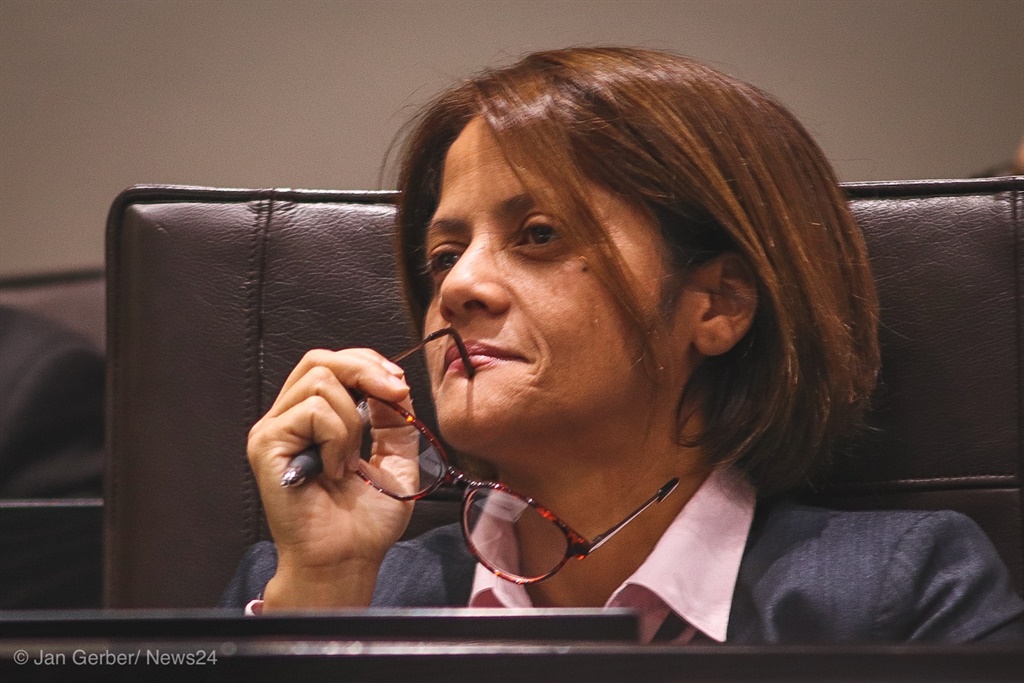


Head of the NPA’s Investigative Directorate, advocate Hermione Cronje.
- The NPA’s Investigating Directorate will recruit investigators from the Zondo commission by the end of the month.
- It should help “effect quick results in priority cases”, according to Justice Minister Ronald Lamola.
- This is possible after the Zondo commission’s regulations were amended in July.
In order to “effect quick results in priority cases”, the National Prosecuting Authority’s (NPA) Investigating Directorate will recruit investigators from the Zondo Commission of Inquiry by the end of September.
This can be done because the commission’s regulations were amended in July to allow its investigators to work at other state enforcement agencies.
At the time, the directorate’s head, advocate Hermione Cronje, described it as a morale boost that will speed up investigations.
In a written parliamentary question to Justice Minister Ronald Lamola, DA MP Werner Horn asked what steps the Investigating Directorate took to speed up its investigations and prosecutions of crimes related to the Zondo commission since the amendment of the regulations.
“Corruption in this country has imposed severe costs. We are continuously intensifying our fight against corruption to ensure economic recovery, achieve better services with taxpayers’ money and re-establish trust around the world,” reads Lamola’s answer.
He added that the amendment to the regulation “has provided significant impetus to the Investigating Directorate’s work”.
“The Investigating Directorate (ID) has, since its inception, been hamstrung by the inability to hire its own investigators; in part because the 2008 amendments to the NPA Act removed the post of special investigator from the NPA.”
The amendment allows the commission to share information, records or documents directly with the ID.
On 7 August, the NPA and the commission signed a protocol to regulate sharing of information between the two entities.
This means where the work of the commission and the ID overlap, the ID is able to gain insight into lines of enquiry already pursued by the commission, even though this evidence has not yet been led at public hearings.
“Access to this information and evidence will avoid duplication of effort and significantly shorten the ID’s outstanding investigations,” Lamola said.
Since the amendment, the commission has already placed its digital forensic capability at the disposal of the ID in two of its priority investigations.
This cooperation also includes the recruitment of the commission’s investigators.
“Investigators from the State Capture Commission will be hired by the ID, as soon as end of September 2020, when the commission hopes to wrap up its investigations.
“The urgent recruitment is to effect quick results in priority cases that the ID is already investigating by bringing on board persons with the necessary skill and capacity, who already have substantial background knowledge and understanding of the matters,” reads Lamola’s answer.
“A working group will, among other key initiatives, prepare a recommendation to the National Director of Public Prosecutions, Minister of Justice and Correctional Services, and the Minister of Finance, specifying terms and conditions of employment for persons with the specific skill, experience and expertise to be appointed to prosecute in specific cases in terms of Section 38 of the NPA Act.”

